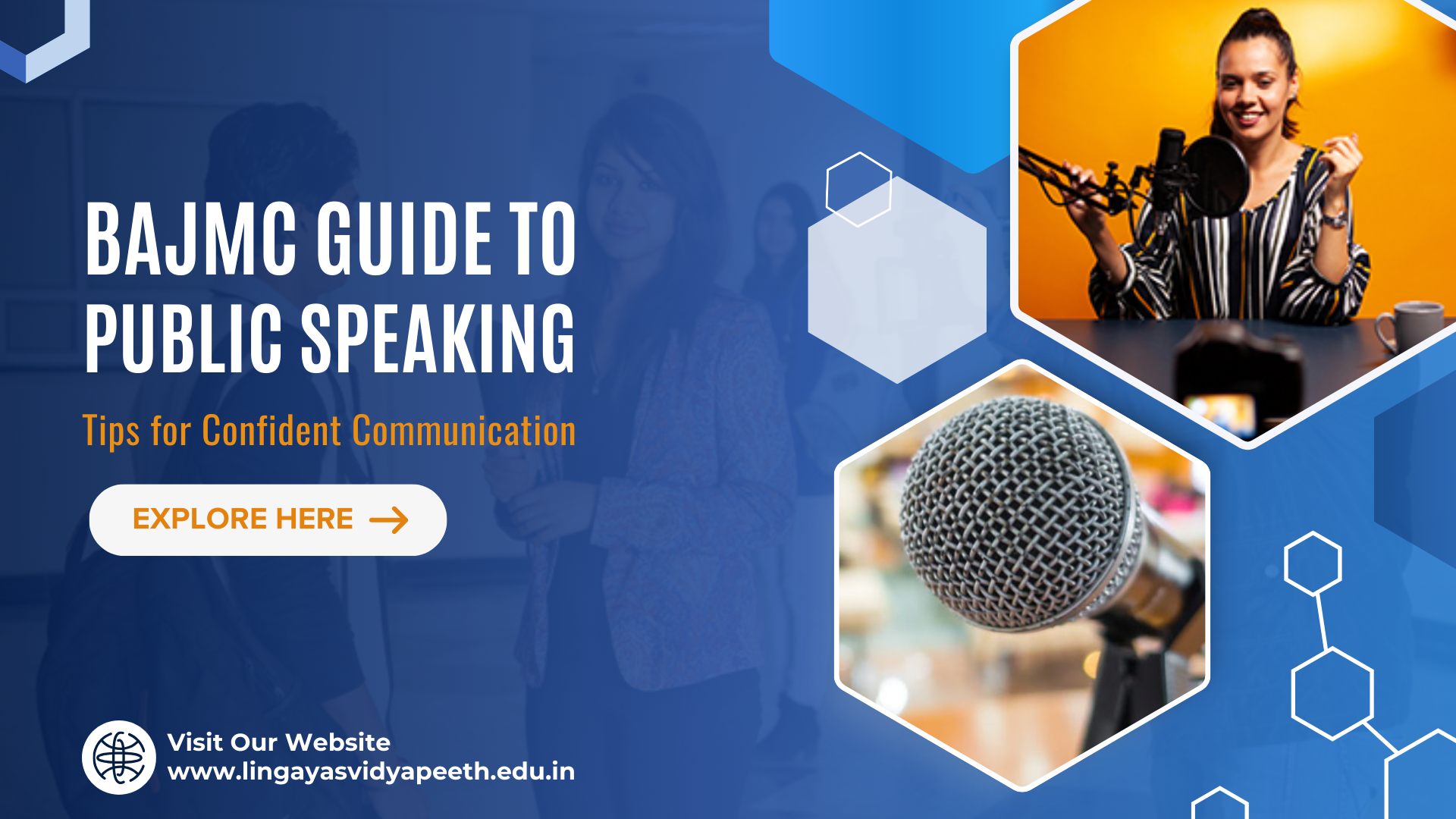Home » Mastering Public Speaking: Essential Tips for BAJMC Students

For BAJMC (Bachelor of Arts in Journalism and Mass Communication) students, public speaking isn’t just an elective; it’s a fundamental skill. Whether you’re delivering a news report, presenting a project, or interviewing a guest, the ability to communicate effectively in front of an audience is paramount. This blog post offers essential tips to help BAJMC students master the art of public speaking and confidently command any stage.
In the world of journalism and mass communication, your voice is your instrument. Public speaking skills are crucial for:
How Media Plays a Vital Role in Crisis Communication?
Navigating the Dynamics of Public Relations: Building Bridges in a Connected World
What Can You Do After a Degree in Journalism and Mass Communication?
Conclusion:
Mastering public speaking is an ongoing process. Embrace every opportunity to practice, seek feedback from your instructors and peers, never stop learning and excel in the field of journalism and mass communication.
Do you wish to pursue a degree in BAJMC? Lingaya’s Vidyapeeth stands the best option for you, being the leading best colleges for BAJMC in Delhi NCR, we provide you cutting-edge curriculum, experienced faculty, and modern facilities. Our on-the job training, industry connections, and focus on practical skills prepare you for success in the ever-evolving world of journalism. Enrol now and unlock your full potential!
From
Ms. Neha
Assistant Professor
Dep. of Journalism & Mass Communication
Lingaya’s Vidyapeeth
Best Journalism Colleges in Delhi NCR
RECENT POSTS
CATEGORIES
TAGS
Agriculture Agriculture future AI Architecture artificial intelligence BA English BA Psychology BTech CSE BTech Engineering Business management career Career-Specific Education career guide Career Opportunities career option career scope Civil engineering commerce and management Computer Science Computer science engineering Data science degree education Engineering Engineering students English Literature english program Exam tips Fashion Design Fashion design course Higher Education Journalism journalism and mass communication law Law career Machine Learning MA Psychology Master degree mathematics MBA Mechanical Engineering Pharmacy Psychology Research and Development students
University Address: Nachauli, Jasana Road, Faridabad, Haryana
Toll Free: 1800-120-4613
Mobile : 8447744303 | 8447744304 | 8447744306 | 8447744309
Address: C-72, Second Floor, Shivalik, Near Malviya Nagar,
Above HDFC Bank, New Delhi 110017
Ph.No. - 011-46570515 / 45138169 / 41755703 / +91-7303152412
Jagmani Kutir, Ground Floor, Road No-1, Rajeev Nagar,
Near Darbar Marriage Hall, Patna-800024, Bihar
Contact No: 9818352069/8130120095
Mail: [email protected]
Copyrights © 1998 - 2025 Lingaya's Vidyapeeth (Deemed To Be University). All rights reserved.
It is important to note that the following email IDs and domains are fraudulent and do not belong to our university.
LV only conducts physical/online verification of any document related to examination on the following email id: